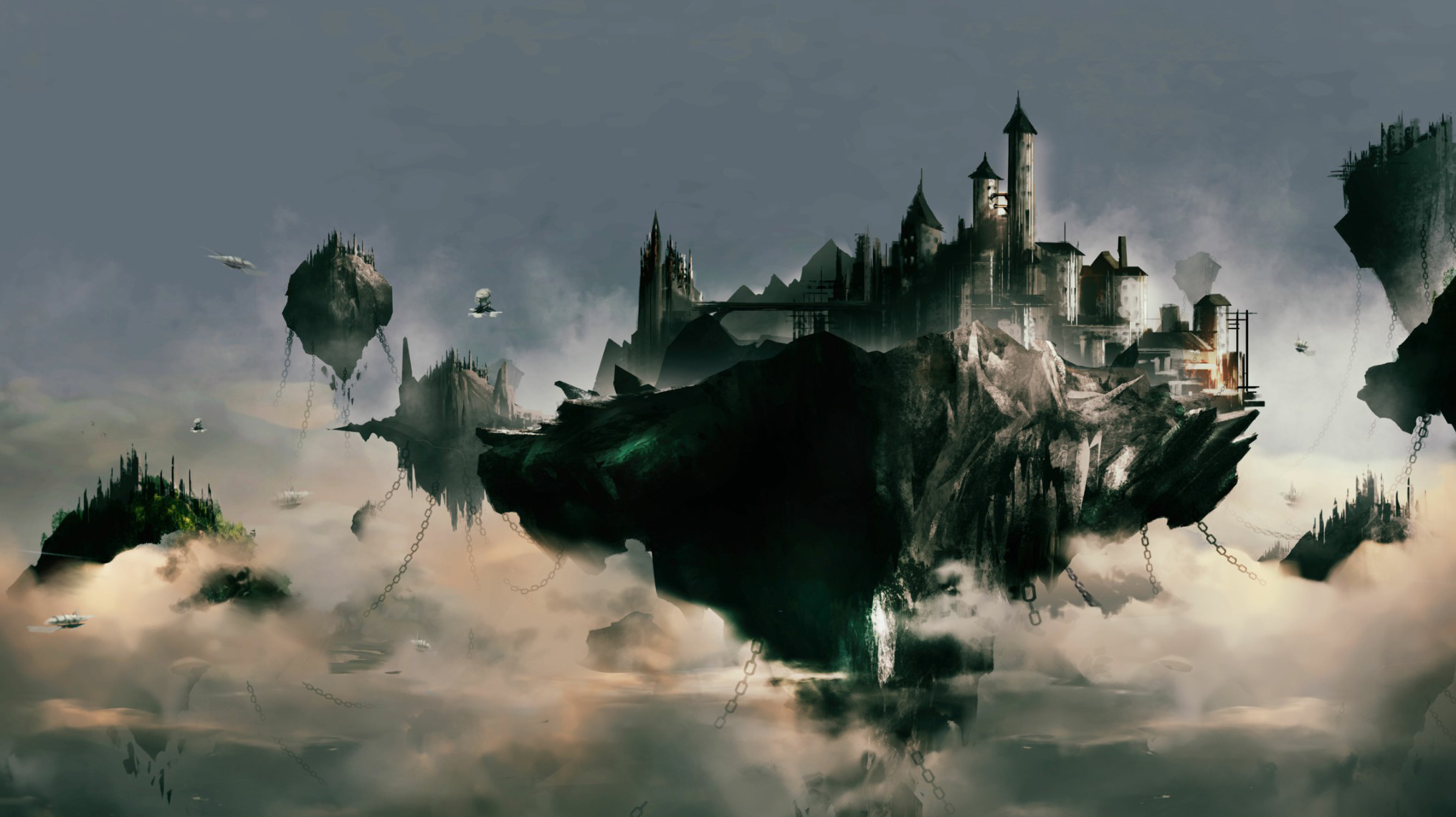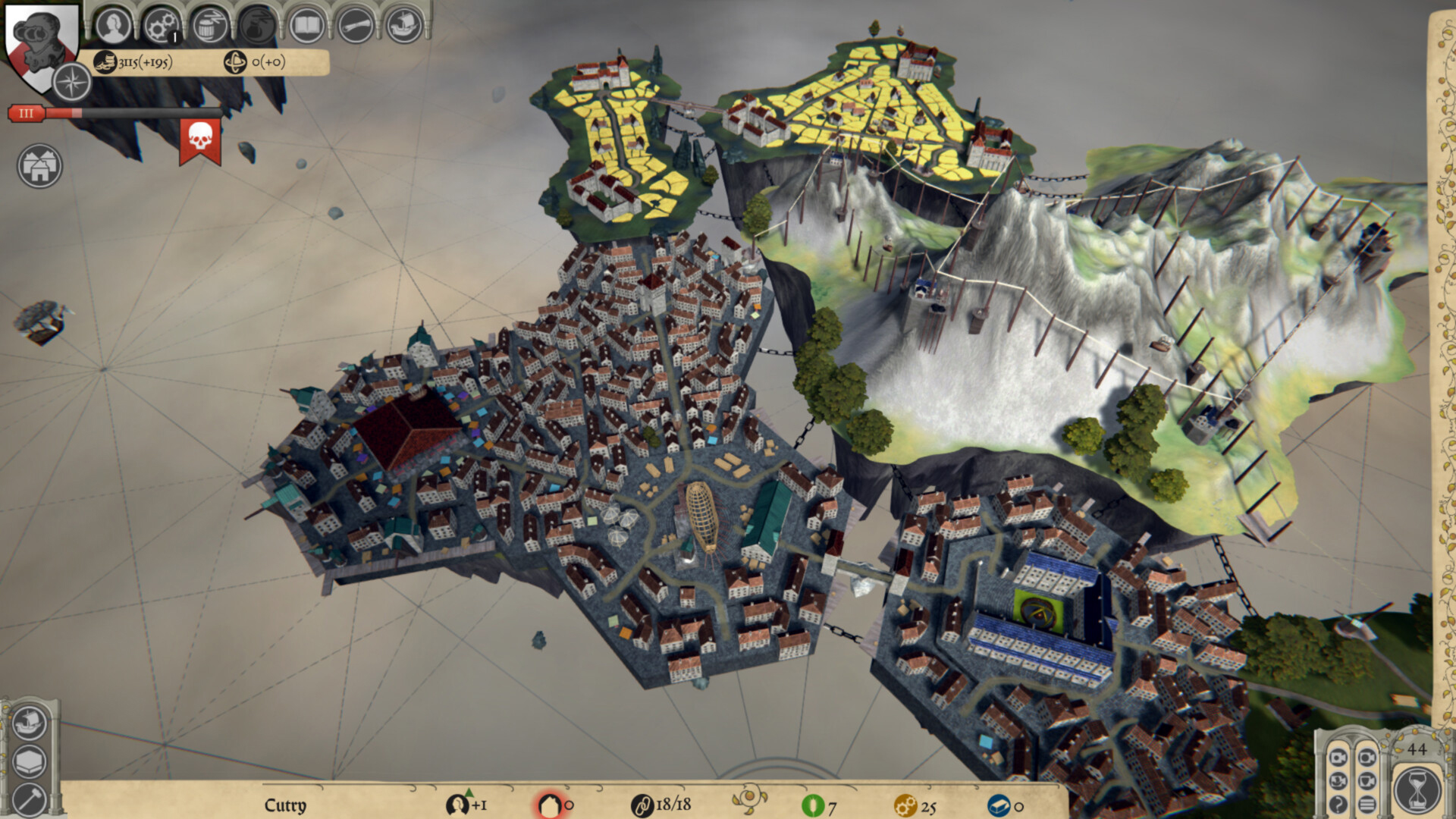In this 4X strategy city builder you chain floating islands together to build an empire
Myriads: Renaissance is a blend of 4X, city building, strategy, and even tower defense, set on islands in the sky.

There's something intriguing about islands floating way up in the clouds, especially if you can connect them with massive chains, pull them together, and build a city on top of them. That's the idea in Myriads: Renaissance, a turn-based strategy game that's got everything from city building to 4X to tower defense systems. There's a free demo you can try now, and the full game is planning a Steam release on June 1.
I had a little go of the demo, which lets you play for 60 turns. Things went great for… well, about 50 of those turns. I began by building on the small collection of sky islands that comprised my airborne kingdom: a market to serve as my city center, a farm to generate food, a sawmill in the forest for wood, and a mine on a mountainous island to produce gold. Along with my small cluster of floating islands I also had a galleon, which I could send sailing through the air to explore the fog of war (or maybe at this altitude, it's the clouds of war), revealing more of the massive map of islands.
Soon I had a shipbuilder in my city, where I could add to my airborne armada with passenger ships to colonize more distant islands, and tugboats, which I could send out to chain and drag nearby floating islands to my city. Depending on what I needed—forested islands for more wood or mountains for more mining—I could connect 'em to my growing, floating empire and start building on them.
But growing a floating city in the sky doesn't go unnoticed. Enemy factions started sailing my way, which at first could be handled by my galleon until some larger, more dangerous fleets appeared. In Myriads you can toggle between two views of the world—a tactical map of the entire sky and a local view of your city. My city was looking great with busy little farms, lumber camps, and tiny airships delivering goods here and there. The tactical map was a different story. First I saw an enemy ship heading for my new colony on a distant island, so I dispatched my galleon to defend against it. But when it was halfway there, a much larger enemy sailed from another direction straight toward my city center.
I had to divert my galleon back to the city, leaving my new colony defenseless, and in the turns it took to reach my market the larger enemy had already destroyed two of my newly built weaker ships. Luckily I had stationed a defensive tower on an island nearby, which helped weaken the enemy so my galleon was able to finish it off.

That's about when my 60 turns in the demo ended, and I wish I could have played a bit more. There's a tech tree for researching new innovations, which include barracks and defense colonies to increase your military might, merchant guilds and trading colonies, cartographers, and additional tiles to increase the size of your floating kingdom. Judging from some of the screenshots on the Steam page, your city can get quite big as it advances through four eras of technology.
I only got a small taste of Myriads: Renaissance, but it strikes me as a nice balance of city building, resource management, and strategy, where you have to expand quickly to gain resources and build up your strength, but if you expand too quickly, like I did, enemies will chew the edges off your growing kingdom.
The biggest gaming news, reviews and hardware deals
Keep up to date with the most important stories and the best deals, as picked by the PC Gamer team.

Chris started playing PC games in the 1980s, started writing about them in the early 2000s, and (finally) started getting paid to write about them in the late 2000s. Following a few years as a regular freelancer, PC Gamer hired him in 2014, probably so he'd stop emailing them asking for more work. Chris has a love-hate relationship with survival games and an unhealthy fascination with the inner lives of NPCs. He's also a fan of offbeat simulation games, mods, and ignoring storylines in RPGs so he can make up his own.

